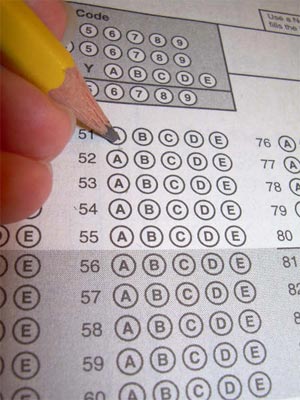Jumping the Last Hurdle
Tackling the Advanced Placement Tests: Are They Worth It?

As of this Friday, I have fifteen days until high school is officially over. Fifteen days. I can hardly comprehend it. After slaving away for the past four years in untold hours of work, too little sleep, anxiety, and all too many “life lessons,” it will all be over in just over two weeks. I’m waiting for the realization to hit me, but right now, I’m distracted by the celebration of what I have just accomplished and all that remains to be done.

For the past two weeks, the school library has been reserved for the nationwide Advanced Placement (AP) exams. AP exams are a serious matter – tests that can exempt students from taking future college courses. In the weeks leading up to the big test, AP students have been cramming in Starbucks study sessions, fervently reading review books, and worrying about the effect these tests will have on their future. Truth be told, the most anxious students are those taking these tests for the first time – generally sophomores. Personally, I recall locking myself in my room for the entire month prior to the test and witnessing a boy praying before taking the exam. The three-hour test was painful, but the studying paid off well: religion aside.
By the time senior year hit, AP students knew the ropes. The overachievers of my senior class have filled their schedules with as many as five AP courses, roughly equivalent to five college courses a semester. Further, some of them are taking four or more of these AP tests in hopes of gaining early college credit or to save money. This year, the tests costs $84 each. With a passing score, a student can be exempt from that subject’s first semester class in college, saving hundreds of dollars. (Credit value varies depending on school). Furthermore, high schools provide vouchers to students with financial aid, so all eager students are capable of taking the test.
The AP exam is graded on a curve in relation to the performance of students nationwide. Grades are given from 1 through 5, intended to represent college grades. A 5 is equivalent to an A, a 4 to a B, and so on. However, to achieve a 5 on most tests, students need to have roughly 60 percent of their answers correct. This seemingly low standard reflects the difficulty of the test material and the rate at which high school students perform. However, with a pass rate designated so low, is it even beneficial to high school students to be able to test out of college courses? Are AP tests just a business scheme that actually provides income to test prep companies and the test makers themselves?
Regardless of the company’s true intent, students continue to take AP tests in hopes of furthering their education and giving them a head start on the competition. Not to mention the months of hard work leading up to the test result in free time until the end of the year. Many seniors viewed AP tests as the last hindrance of high school, and now there’s not much keeping seniors in their seats. For those who do show up, they are greeted by end-of-the-year projects or card games. Honestly, I don’t mind. My brain is still fried from that three-hour-plus long test. I think we deserve the break.



